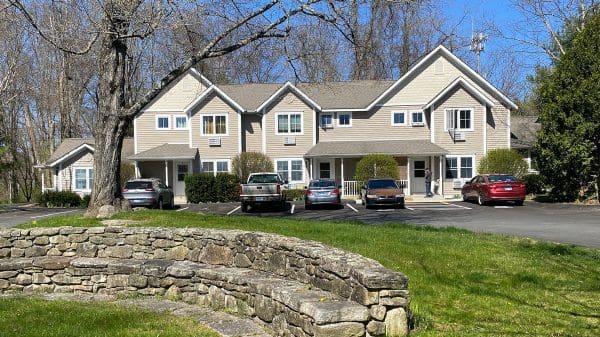This article is part of U.S. Democracy Day, a nationwide collaborative on Sept. 15, the International Day of Democracy, in which news organizations cover how democracy works and the threats it faces. To learn more, visit usdemocracyday.org.
Since 1845, when Congress signed it into law, American elections have been held on the first Tuesday, following the first Monday of November. Ever wondered why?
The answer lies in the agrarian economy of 19th-century America, according to the website, History.com.
In the 1840s, America’s population was just over 17 million, with about 69 percent of the labor force working in agriculture. By November, those farmers— at that time, only white male property owners were allowed to vote—had finished working in their fields and could afford to take a day or two to walk or ride to their polling places.
Lawmakers needed to allow a two-day window for election day. Weekends were impractical, because most people spent Sundays in church, and Wednesday was market day.
The first Tuesday after the first Monday was selected to prevent it from falling on Nov. 1 because some Christians observed it All Saints’ Day and because merchants typically settled their books for the previous month that day.
States had previously been allowed to hold elections any time they pleased within a 34-day period before the first Wednesday in December.
But this time frame suffered from a concern familiar today: it was feared that early voting results might affect turnout and sway opinion in states that held last-minute elections. Faced with these issues, Congress created a uniform election day.
Today, all that has changed.
With a mid-2024 population estimated at 345,426,571, of which only 2 percent are engaged in agriculture, the old reasoning is passe.
But casting a vote can still be a problem for modern-day voters, with lines in cities stretching long and the wait being wearisome. With Tuesday now a workday for most Americans, it is easy to be disenfranchised.
Hence, early voting.

The U.S. has again stretched the period in which votes can be cast to allow citizens to vote when it is convenient.
As of August 2024, 47 states, the District of Columbia, Guam, Puerto Rico, and the Virgin Islands offer early in-person voting.
The voting periods vary by state, ranging from as little as three days before the election to as much as 46 days. Some states provide for weekend voting, and Connecticut is one of only nine that opens its polls on both Saturday and Sunday.
In Kent, early voting begins Monday, Oct. 21, two weeks before the election, and ends on Nov. 3, according to Sal Lilienthal, Republican registrar of voters.
“We will be open from 10 a.m. to 6 p.m. every day except for Tuesday and Thursday, when we will be open 8 a.m. to 8 p.m.” Lilienthal said.
Lilienthal and Democratic Registrar Therese Duncan have agreed to have four people present during all opening hours.
“Connecticut allows curbside voting,” Lilienthal explained. “So, if two of us have to go outside, we need another two in the office.”
This can come at a considerable expense for a small town.
Lilienthal reports that the registrars receive $26.67 an hour, deputy registrar $20.37 an hour, the moderator $20.60 and poll workers, $16.16. Combinations of these workers will have to cover a total of 128 worker hours.
“The rule of thumb is that it costs $800 a day to open the polls, and $1,200 on Tuesdays and Thursdays,” he said.
He estimated that during the low-turnout Republican Senatorial Primary—a total of 44 people voted in Kent over seven days, with 15 using the early voting option—it cost about $500 per vote.
“It was unbelievable,” Lilienthal said. “There were literally two days, Saturday and Sunday, when no one came in. There were four of us sitting there, reading a book or whatever.”
He is not willing to condemn early voting for small towns, however. It is, after all state law.
“Right now, it’s a little bit of an experiment,” he said, predicting that 300 to 500 people could access early voting in Kent during the presidential election.
“Statistics in other states show that about 15 percent of people use early voting during presidential elections and this is definitely an emotionally charged election,” he said. “If anything, I would leave decisions about early voting up to towns. Let them decide when to be open, rather than have a rule for all the state.”
Democratic Registrar Therese Duncan said she believes that the state will continue to uniformly apply its early voting requirement to all towns.
“I don’t see them dividing it by small, medium and large towns,” she said. “It is true that previous offerings of early voting were not well attended, but those were primaries.”
“Percentage wise, primaries are not usually great,” she said. “We won’t really know until we have the November voting. We will have a history after the finish and that can tell the legislature what days or times were beneficial.”
“It is the law in Connecticut that we have early voting, but it is prudent to look at what the numbers are to see what early voting was—two weeks seems long time,” she related.
“Fifteen percent is an interesting number, but I am not sure we will get that in the first year we have used it,” Duncan said. “Those are statistics gleaned from surrounding states, but it depends on their demographics. Do those voters work out of town? Do they travel? What are their ages?”
She said in Kent having a sign on Route 7 announcing early voting brought in people who would not have voted at that time. “We know because they told us so,” she said.
First Selectman Marty Lindenmayer said he would withhold comment on whether early voting is good for small towns until after the election.
Selectmen in many small towns have been alarmed by the increase in the budgets for registrars, even though the state provided communities $10,500 to offset costs in the first year.
“The primary cost was significant for nothing,” he said, “but that may change with the presidential election.”
He added that the state has allocated another million dollars to help towns meet costs and that Kent has applied the $2,000 it is eligible for under the state’s formula.
Early voting did not come easily to Connecticut.
Republicans voiced concerns about removing what they consider voting safeguards and worried whether local voting officials would have enough funding and staffing to pay for it. A poorly worded ballot question in 2014 that many feel was confusing to voters rejected it.
Connecticut voters finally approved a constitutional amendment in 2022 and the General Assembly passed legislation last year.
“The idea of early voting is really important,” said Duncan. “Not everyone can be there on election day and a lot of people really want to cast their own ballots.”
That said, there will be a question on the ballot about expanding absentee voting to allow all voters to cast their ballots by mail.
Permitting no-excuse absentee voting, as it’s commonly called, would expand Connecticut’s voting laws, which currently only allow residents to vote by mail under certain circumstances.
Absentee Ballots become available Friday, Oct. 4. Applications for an absentee ballot can be downloaded here. U.S. citizens living outside the country, including those associated with the military, can complete a FPCA form found here.
Applications can be mailed to Kent Town Clerk, P.O. Box 843, Kent, CT 06757, or can dropped off in the white absentee ballot box located in the side parking lot at town hall.
Alternatively, electors can apply in person at the Town Clerk’s Office.
Both Lilienthal and Duncan say there is no chance of double voting with early voting or absentee ballots.
With the Connecticut Voter Registration System, each elector’s name is checked off when his or her vote is cast.
“There are an extra two steps we have to take to put person’s name in the pipeline for early voting,” Lilienthal explained. “We log in and there’s a function for elections. We go to early voting, but in the name and check off that they have already voted.”

























